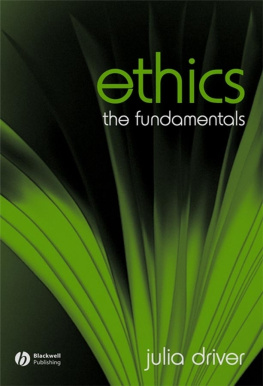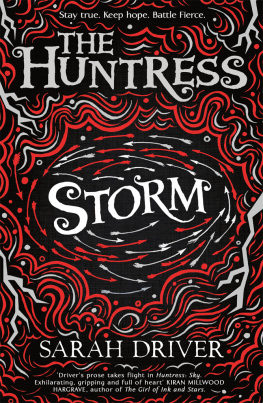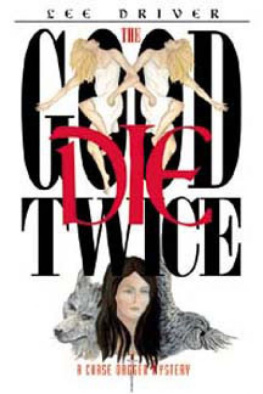Driver - Ethics
Here you can read online Driver - Ethics full text of the book (entire story) in english for free. Download pdf and epub, get meaning, cover and reviews about this ebook. year: 2013, publisher: Wiley, genre: Romance novel. Description of the work, (preface) as well as reviews are available. Best literature library LitArk.com created for fans of good reading and offers a wide selection of genres:
Romance novel
Science fiction
Adventure
Detective
Science
History
Home and family
Prose
Art
Politics
Computer
Non-fiction
Religion
Business
Children
Humor
Choose a favorite category and find really read worthwhile books. Enjoy immersion in the world of imagination, feel the emotions of the characters or learn something new for yourself, make an fascinating discovery.
- Book:Ethics
- Author:
- Publisher:Wiley
- Genre:
- Year:2013
- Rating:4 / 5
- Favourites:Add to favourites
- Your mark:
- 80
- 1
- 2
- 3
- 4
- 5
Ethics: summary, description and annotation
We offer to read an annotation, description, summary or preface (depends on what the author of the book "Ethics" wrote himself). If you haven't found the necessary information about the book — write in the comments, we will try to find it.
Ethics — read online for free the complete book (whole text) full work
Below is the text of the book, divided by pages. System saving the place of the last page read, allows you to conveniently read the book "Ethics" online for free, without having to search again every time where you left off. Put a bookmark, and you can go to the page where you finished reading at any time.
Font size:
Interval:
Bookmark:

Fundamentals of Philosophy
Series Editor: A. P. Martinich, University of Texas at Austin
Each volume in the Fundamentals of Philosophy series covers a key area of study in philosophy. Written with verve and clarity by leading philosophers, these authoritative volumes look to reveal the fundamental issues and core problems that drive interest in the field.
Forthcoming
Linda Zagzebski, Philosophy of Religion: An Historical Introduction
Ned Hall, Philosophy of Science: The Fundamentals
Michael Tye, Mind and Body
Paul Snowdon, Metaphysics: The Fundamentals
Thomas Kelly, What Should We Believe? The Fundamentals of Epistemology

2007 by Julia Driver
BLACKWELL PUBLISHING
350 Main Street, Malden, MA 021485020, USA
9600 Garsington Road, Oxford OX4 2DQ, UK
550 Swanston Street, Carlton, Victoria 3053, Australia
The right of Julia Driver to be identified as the Author of this Work has been asserted in accordance with the UK Copyright, Designs, and Patents Act 1988.
All rights reserved. No part of this publication may be reproduced, stored in a retrieval system, or transmitted, in any form or by any means, electronic, mechanical, photocopying, recording or otherwise, except as permitted by the UK Copyright, Designs, and Patents Act 1988, without the prior permission of the publisher.
First published 2006 by Blackwell Publishing Ltd
1 2007
Library of Congress Cataloging-in-Publication Data
Driver, Julia, 1961:
Ethics: the fundamentals / julia Driver.
p. cm. (Fundamentals of philosophy series)
Includes bibilographical references and index.
ISBN-13: 978-14051-1155-3 (hardcover : alk. paper)
ISBN-10: 1-4051-1155-0 (hardcover : alk. paper)
ISBN-13: 978-1-4051-1154-6 (pbk.: alk. paper)
ISBN-10: 1-4051-1154-2 (pbk.: alk. paper) 1. Ethics. I. Title. II. series: Fundamentals of philosophy.
BJ71 D75 2006
170 dc22
2006012513
A catalogue record for this title is available from the British Library.
The publishers policy is to use permanent paper from mills that operate a sustainable forestry policy, and which has been manufactured from pulp processed using acid-free and elementary chlorine-free practices. Furthermore, the publisher ensures that the text paper and cover board used have met acceptable environmental accreditation standards.
For further information on
Blackwell Publishing, visit our website:
www.blackwellpublishing.com
Acknowledgments
I would like to thank a number of people for helping me along with this project. Al Martinich approached me a few years ago, to ask if Id be interested in writing a book for this series. Since I do a good deal of teaching ethics here at Dartmouth, I had some very definite ideas about how an introductory text should go. I also wanted to write one that was accessible and fairly fun to read. So I agreed to the project and am very happy that I did so.
I would also like to think Walter Sinnott-Armstrong, who read drafts of Chapters 1 and 11 and offered valuable comments, as well as Roy Sorensen and Timothy Rosenkoetter, who also read portions of the manuscript and offered comments and ideas on how to improve it. I would also like to thank my Presidential Scholar at Dartmouth, Christopher Schooley, who offered insight from the undergraduates point of view.
There were also several referees from Blackwell who wrote up extensive comments and I would like to thank them for their efforts. I found their advice valuable.
Portions of the material in the book have appeared previously in my article Normative Ethics, for the Oxford Handbook of Contemporary Philosophy, edited by Frank Jackson and Michael Smith (New York: Oxford University Press, 2005); 2005 by Oxford University Press; reproduced by permission of the publishers. Some parts of Chapter 9 first appeared in James Dreiers Contemporary Debates in Moral Theory (Malden, MA: Blackwell, 2005); 2005 by Blackwell Publishing Ltd; reproduced by permission of the author and the publishers.
Julia Driver
[T]he justification of an ethical principle cannot be in terms of any partial or sectional group Ethics requires us to go beyond I and you to the universal law, the universalizable judgment, the standpoint of the impartial spectator or ideal observer, or whatever we choose to call it.
Peter Singer, Practical Ethics
Every human being thinks about how to live a good life how to make the right sorts of decisions, and what sorts of conditions contribute to a morally good life. This naturally leads to thoughts about the following questions: What should we do in order to be good? What considerations make our actions right or wrong? How should we go about deciding how to act in a morally appropriate manner? This book explores various responses to these questions by looking at a wide range of different moral theories.
We should first distinguish moral oughts from other types of oughts. Some different normative concepts are associated with prudence, some with rationality, and some with aesthetic norms. Moral norms primarily concern our interactions with others in ways that have significance to their well-being. Thus, while it is true that we ought to eat at least five servings of fruits and vegetables a day, this ought is not a moral one. If we fail to do this, we have harmed only ourselves so it is a failure of prudence, not of morality. Also, one ought not to hang a psychedelic black velvet painting over ones colonial fireplace. However, doing so is not a moral failure. If anything, it is an aesthetic failure. But if we do something that could harm or benefit someone else, then arguably this is a moral matter. Someone who wrongfully harms another does something that he or she ought not do in the moral sense of ought. It is this sense that is the subject of normative ethics, and it is an understanding of this sense of ought that is at the heart of normative ethical theories.
Normative ethics is the area of philosophy that, broadly speaking, is concerned with standards for right conduct and moral evaluation. Generally, such a theory will give an account of right action and try to give some idea of what makes it right. Some writers, however, tend to focus more on character evaluation; that is, on criteria for evaluating a persons character. In fact, in recent years there has been a move away from simply focusing on right conduct in articulating a moral theory and toward placing more emphasis on character evaluation that is, moving away from focus on right action and toward the issue of what is involved in being a good or virtuous person. Still, whatever the focus, moral theories are primarily concerned with (1) providing moral guidance and (2) the moral evaluation of human conduct. Central concepts such as right, wrong, good, bad, permissible, and impermissible need to be articulated to accomplish these tasks. Different moral theories spell out application of these concepts differently, and one task of this book will be to discuss the various approaches that have been taken to, for example, providing an account of right action and good character.
An example of a moral problem might help us to understand the tasks of moral theory. Consider the case of Mary, who must decide whether or not to authorize additional medical treatment for her mother. Her mother is in intense pain from her illness, but because she is also suffering from dementia she cannot authorize cessation of treatment herself. Only Mary now has that authority. An ethical theory would first of all try to provide some guidance for Mary for example, it might offer a principle such as One ought to try to minimize needless suffering, in which case there is a reason for Mary to authorize that her mothers treatment cease, since her mothers suffering is so intense and since her mother also has no prospect of recovery. Or a theory might present the principle that One ought to do whatever one can to keep a human alive at all costs, in which case Mary would have a moral reason for continuing the treatment even though this will mean continued suffering for her mother. The point of this example is not to argue which putative moral principle is right, but to give some idea of how such principles can help
Next pageFont size:
Interval:
Bookmark:
Similar books «Ethics»
Look at similar books to Ethics. We have selected literature similar in name and meaning in the hope of providing readers with more options to find new, interesting, not yet read works.
Discussion, reviews of the book Ethics and just readers' own opinions. Leave your comments, write what you think about the work, its meaning or the main characters. Specify what exactly you liked and what you didn't like, and why you think so.













